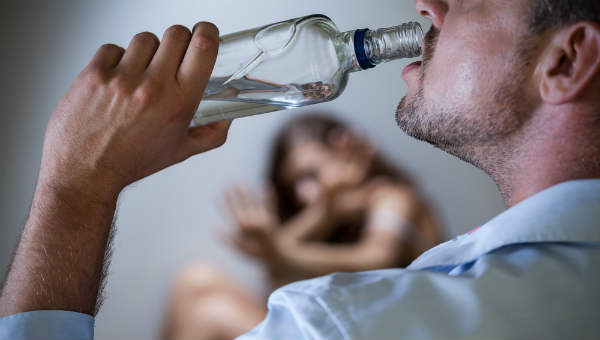As England reaches the finals of the Euros, we’re reminded of the link between English matches and increased intimate partner domestic violence.
Police forces across the UK have seen domestic abuse rates surge following national and international football events. Domestic abuse rises on days England plays a match – during the hours of the match, the hours after and the following day.
A study in 2014 found that intimate partner violence increased by 38 per cent when England lost a match and by 26 per cent when England won or drew. National football in England substantially increases the likelihood of alcohol-related violence, in both domestic and wider settings, exacerbating a pre-existing epidemic of domestic abuse. The most recent data shows that this increase in domestic abuse is primarily male-on-female and alcohol-related; 78 per cent of the data involves a male perpetrator and a female victim.

Violence amongst football fans is male-dominated, rooted in a culture with strong hyper-sexist conventions. Patriarchal forms of masculinity have been able to thrive in historically male-dominated spaces, like football, reproducing patriarchy with sexist and anti-feminist attitudes. The media has reported on sexist behaviour by male fans widely in recent years; surveys have also revealed the scale of the issue. In 2015, BBC footage showed a Chelsea female medic being taunted with sexist abuse by fans, and in 2018, the organisation, Women in Football, reported a 400 per cent increase in discrimination and sexism against women. A survey earlier this year by the Canaries Trust supporters group also revealed that at least 20 per cent of female Norwich City fans experiences sexism during football games.

Alcohol, identified as an aggravating factor in domestic abuse, is also a part of football sponsorship. The UEFA Champions League has renewed their partnership with the beer company, Heineken, until 2024, and the beer brand, Budweiser, continues to be a long-standing sponsor of the World Cup. Studies have found that scheduling games later in the evening reduces football-related abuse as games earlier in the day enable people to drink more. Such insights have important implications for policy in mitigating the link between sports and violence. A study published last year concludes: “The link between England football victories and the recorded increase in alcohol-related domestic abuse is likely to be causal.” Police figures have also shown that during the 2018 world cup, over 25 per cent of more than 300 domestic abuse incidents took place during England games, reaching a peak when England lost to Croatia in the semi-finals.

A study analysing ten years worth of crime data from the West Midlands Police – England’s second-largest police force and found a strong causal link between alcohol consumption and alcohol-related violence on days England played football – an increase of 47% of alcohol-related domestic abuse on days when England won a match. Crucially, there was no increase found in the number of non-alcohol related domestic abuse. It’s important to note however that whilst factors like alcohol and earlier games drive domestic abuse incidents following English football matches, the deeper issue of normalised male violence in relation to football events and the social problem of male violence against women more broadly, remain at the root of these issues. Stereotypical masculine traits such as dominance, aggression and achievement are glorified in football culture. Expressions of this masculine identity can take forms of spontaneous or unprovoked violence, in both public and private spaces.

Domestic abuse support organisations, such as Women’s Aid and Refuge, run campaigns working with national footballing bodies to raise awareness and reduce domestic violence. The chief executive of Refuge, Ruth Davison, said earlier this year: “As the EUROs start, our message to people experiencing domestic abuse remains clear: You are not alone, Refuge is here for you.” Whilst coalition efforts by domestic abuse charities and football clubs help to raise awareness on the issue, more football clubs need to work towards creating a football culture that is intolerant of violence.
Free and confidential support is available from Refuge’s 24-hour national domestic abuse helpline on 0808 2000 247, as well as live chat via www.nationaldahelpline.org.uk and https://chat.womensaid.org.uk
You can also contact a local domestic abuse service by using Women’s Aid’s Domestic Abuse Directory www.womensaid.org.uk/domestic-abuse-directory













